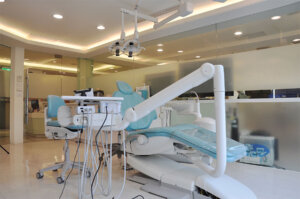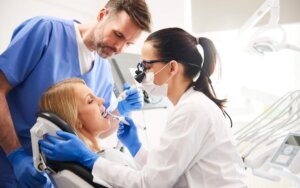Dental clinics use class B autoclaves to sterilize dental instruments and equipment. Class B autoclaves are designed to meet the highest sterilization standards and are particularly well-suited for dental practices due to the nature of the instruments and the potential for contamination. Here are some reasons why dental clinics need a class B autoclave:

- Compliance with Regulations: Dental clinics are subject to strict regulations and guidelines regarding infection control and sterilization. Class B autoclaves are designed to meet these requirements and provide assurance that all instruments are properly sterilized.
- Versatility: Class B autoclaves can sterilize a wide range of instruments, including solid, hollow, porous, and wrapped items. This versatility is crucial in a dental clinic where various types of instruments are used.
- Steam Sterilization: Class B autoclaves use pressurized steam to sterilize instruments, which is effective in killing bacteria, viruses, and spores. This is particularly important in a dental setting where patients’ oral health can be compromised if instruments are not thoroughly sterilized.
- Vacuum Technology: Class B autoclaves often have vacuum systems that remove air from the chamber before sterilization. This ensures that steam penetrates and sterilizes all parts of the instruments, including small lumens and complex devices.
- Documentation and Traceability: Class B autoclaves typically come with built-in data logging and printing capabilities, which allow dental clinics to maintain records of each sterilization cycle. This documentation helps ensure accountability and compliance with regulations.
- Safety Features: Class B autoclaves are equipped with safety features to protect both patients and staff. These features include safety locks, pressure and temperature monitoring, and automatic shut-off in case of malfunctions.
- Post-Vacuum Drying: Class B autoclaves often include a drying phase to remove excess moisture from sterilized instruments. This helps prevent recontamination and corrosion of the instruments.
- Water Quality Monitoring: Class B autoclaves are designed to monitor and ensure the quality of the water used in the sterilization process, which is critical for effective sterilization.
- Biological and Chemical Indicators: Class B autoclaves allow for the use of biological and chemical indicators to verify the effectiveness of the sterilization process, providing an added layer of safety.
- User-Friendly Interface: These autoclaves are typically user-friendly with programmable cycles and easy-to-read displays, making them easy for dental clinic staff to operate.
In summary, a class B autoclave is a critical piece of equipment in dental clinics because it ensures the highest level of instrument sterilization, compliance with regulations, and the safety of patients and staff. Dental instruments must be free from pathogens to prevent the spread of infections and maintain a high standard of patient care.







